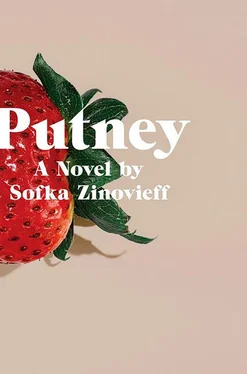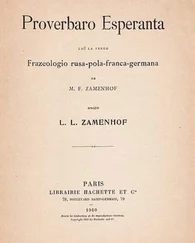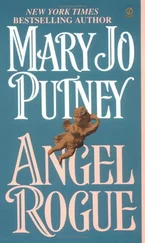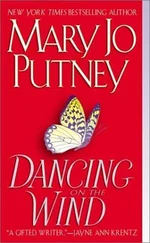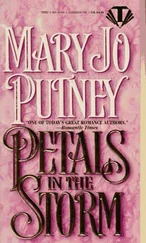Unlike Daphne, he always made calculations before any move, careful as a chess player. It was not that he eschewed risk, far from it. After all, his relationship with Daphne always threatened a daunting array of penalties. But, from his schooldays, he had learned to hold things in and bide his time, so that even the madness of love was efficiently delayed or disguised. There was no escape from that perspective now – no way of arguing that she had not been a child, or that he had not understood at some level. The prosecution was no longer a threat, but he knew he had been far more toxic to her than she could ever have been to him. I was one of those marine monsters, he thought. And she just leaped into my jaws.
He pulled his mother’s soft old wrap around his head and tried to sleep.
—
They took a taxi from the airport to the apartment in Pangrati, the busy, central neighbourhood where Nina had grown up and which her mother preferred to the village for winters. The driver revved and slammed on the brakes in a series of unsuccessful shortcuts, which Nina believed increased the journey time. When they finally arrived, a dusty wind whipped their faces and the pavement was piled with stinking bags of rubbish – presumably another strike. He’d always found Athens impossible, with its chaos and the intensity of stimulants for the senses that took one to both extremes, often simultaneously – if you came across sweet-scented flowers, there was sure to be a sewer nearby.
His mother-in-law called the formulaic greeting of welcome in Greek through the intercom and Nina answered with the ‘Well found!’ response that he never quite got the hang of. He had once hoped to learn Greek, but failed to master more than a few basic phrases. Nina’s mother spoke French but barely any English, and his French was almost as rusty as he pretended to her, so they had got through decades with minimal verbal communication. Probably just as well. Even at nearly ninety, his mother-in-law was a daunting woman – nothing playful in her old eagle eyes. He sensed she didn’t quite trust him.
The flat was on the third floor of a 1930s building and, with its mahogany wardrobes and formal dining room, it seemed stuck in the era of Nina’s childhood, when Pangrati had been more sedate and middle class. Now, the neighbourhood was crowded, complicated and much poorer.
‘She asks if we’re hungry,’ translated Nina. ‘There’s chickpea soup and spanakopita .’
‘I think I’ll lie down for a bit,’ he said, unable to contemplate eating anything as robust as these classic Greek dishes. His mother-in-law’s spinach pies were legendary in the family and, packed with feta and dripping golden olive oil, they lay heavy on the stomach.
Nina hadn’t told her mother about Ralph’s cancer. It was customary in their family to believe they were protecting each other by lying about bad news. Nina’s father had died after almost two years with pulmonary fibrosis and they did not tell their only daughter until he was actually expiring in hospital. With the same logic, his mother-in-law knew only that Ralph had had some sort of flu and was under the weather. She offered to make him some mountain tea as she followed the couple into the room that had always been Nina’s. A small oil lamp was burning below the icon in the corner. Rather beautiful, he thought, enjoying the aesthetic of Orthodoxy from a safe distance. He sat down on the double bed. It was covered with a pink satin bedcover, which had been there from when they were first married and generated recollections of making love with Nina across its slippery surface during the ‘public quiet hours’ on sunny afternoons.
The room reeked of a portable gas heater. Apparently the building’s central heating was no longer turned on, as the occupants could not afford the fuel bills. ‘She saw her neighbours hacking branches off the bitter orange trees in the street so they could light a fire at home,’ translated Nina, as her mother rattled on from the doorway. ‘The whole city gets covered in a cloud of smoke when it’s cold and soon we won’t have any trees left.’ During the last years of the crisis, her briskly unsentimental mother had volunteered at a soup kitchen in the area, helping feed hundreds of the dispossessed, the elderly and, more recently, the refugees, who were otherwise going hungry. ‘It’s not so different from when Nina was born after the war,’ she said. ‘Everybody needs to do what they can until we get through it.’
When Nina returned with the tea, he was nearly asleep, but raised himself to drink some. It was boiled dark, but soothed him nevertheless. He slept fitfully, listening to Nina’s steady breath next to him and the raucous noises of an Athenian night.
In the morning, he was determined to get up despite feeling frightful. Nina made him breakfast, and he sat in his mother-in-law’s kitchen, basking in the astonishing sunshine that filled the room with a limpid, Attic glow.
‘My mother says we can keep her car as long as we like,’ said Nina. ‘She doesn’t need it in the city.’ She lowered her voice to a whisper, ‘And she’s better off not being able to drive. A threat to public safety.’ She chuckled so sweetly that Ralph glimpsed her as she’d been in her twenties.
‘Thank you, darling.’ He meant it as an acknowledgement of what she had been to him over a lifetime, but she took it as gratitude for the breakfast she’d served him: still-warm bread her old mother had been out to buy that morning and home-made quince preserve. She asked, ‘More coffee?’
He thought about explaining but it seemed absurd. You can’t just say: ‘Thank you for being married to me since 1974.’ And what then? ‘Thank you for suffering my infidelities. Thank you for ignoring my egotism and for bringing up the children while I kept travelling and working and putting so much else before you. Thank you for being here at the end when I’ve been revealed as one of the disgraced – a social leper of the worst sort, who raped a child. Repeatedly. And never even realised it till now.’ The crimes were far too many and too severe for mere thanks to be enough.
Nina prepared everything, loaded their cases into the boot and they set off in her mother’s old car, which spluttered and struggled on the hills.
‘Worse than Maurice,’ she said and they both smiled at the memory of the Morris Traveller, which had eventually refused to budge and was towed ignominiously to the scrapyard. The late October sun was surprisingly hot as they sat in traffic, waiting to get out of the centre. He opened the passenger window to be confronted with gusts of exhaust, Greek pop songs going full blast from a nearby car radio and several motorbikes that surged past so close that he felt their breeze. The familiar landmarks were like beacons of dignity in the urban chaos: the marble curves of the old Olympic Stadium; Lycabettus Hill with its glistening white church; and of course the Parthenon, perched pluckily above the sprawl as if nothing could ever make it crumble. He was fond of Athens, even if it appalled him, but he knew it was a superficial opinion. They never spent long enough there for him to understand it better, and with her preference for nature – her wooded mountains and the sea – Nina never tried to convince him that Greece’s capital was worthy of respect or love.
They did not talk as they moved steadily away from the city along the main northbound highway, until Nina said it felt like time for a coffee and maybe a little cheese pie, and she’d fill up with petrol. As she parked outside a small roadside service station, Ralph’s phone rang. Jeb Rosenberry.
‘Hang on a sec,’ he said to Jeb, making a gesture to Nina that indicated he was going for a short stroll with his phone, though he could tell she didn’t understand.
Читать дальше
